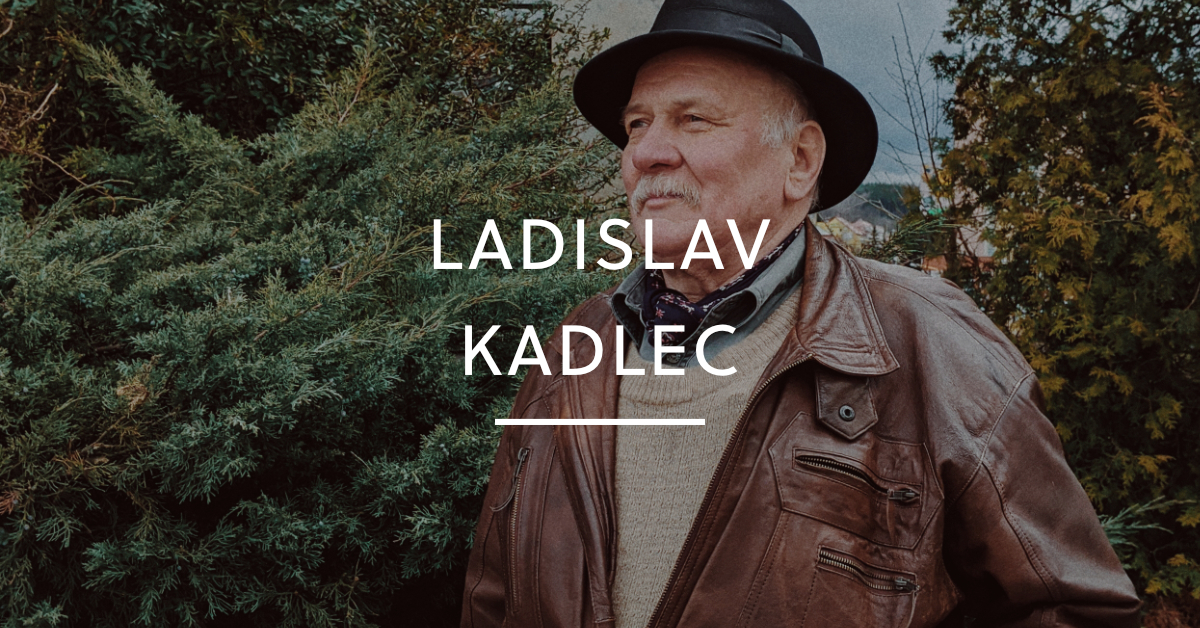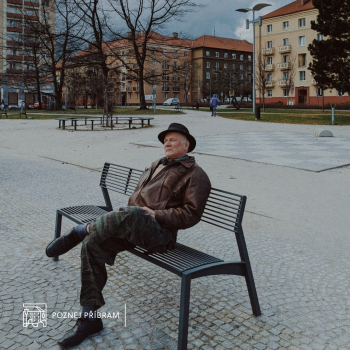Ladislav Kadlec
"There was a line of police cars from the candy store down here," he points to the shorter side of the square, which at the time was named after the October Socialist Revolution.
"On Monday, November 20, we were as many as the cops, and by Tuesday we were outnumbered." Ladislav Kadlec was involved in the November 1989 events in Pribram - and this is the story that brought him to it.

|
But I had this experience when I was in the fifth or sixth grade. It was history, and we got a book. Half the class had the new textbook, the rest had the old one. And the ones that had the old one had to take a pen and we had to black out a gentleman in a photograph. In the new textbook, the picture had already been altered. And at that moment I said to myself: "This dad really isn't lying to me, the picture was there, and suddenly the guy has to disappear, well, that's probably a fraud." I didn't avoid the war either. I was with the helicopters on the Balloon. That was an interesting thing that happened to me, I don't know if it happened to you. One winter, freezing cold, and I was on guard duty. You get eight hours sleep during the day, but fitfully, so I was awfully tired. And I leaned against this traverse and fell asleep standing up. And now I was awakened by footsteps, but they passed over me. These people were walking quite fast and after 15 meters I screamed: "Stop, who's there?!" They got scared, jerked and scolded me. They wanted to report me and send me to Sabinov for sleeping. "But I wasn't asleep," I said. "And why didn't you stop us according to the regulations?" they asked, but I immediately replied, "Well, I saw you coming, and I only realized it afterwards..." I argued with them for a while and finally, I don't know how, I got away with it.
|

|
I was a hunter then, and I had a rifle at home. When the soldiers went to fetch water, they drove a tanker and it was accompanied by a SKOT, a medium wheeled armoured personnel carrier. And in it were these Russians with flintlocks. And they'd go round this bend by a rock. And I thought I'd shoot one of them. That's what I gotta do. But they kept saying on the radio, "Don't do anything, don't give a damn. I finally gave it up. When November 1989 came, it was all kinds of things. In some towns and villages the news from Prague came almost immediately, in others it took several days. The local authorities didn't want to give up. In response to the general strike on 27 November, it was even considered to lock the waterworks building so that no one could leave the building at noon on Monday. Well, the weekend was over, and even the biggest Stalinists, who had hitherto praised the regime itself, joined the strike.
|

|
I've been retired for a while now, and I'm enjoying it. A lot of my time is taken up by looking after the horses, but in my spare time I always like to go for a walk in our beautiful Brda Mountains, which are just behind my door. My favourite places are Třemošná or Pilský Pond. ■ Text: Zdeněk Kubát and Karel Kraus, photo: Karolina Ketmanová |
Other articles:












